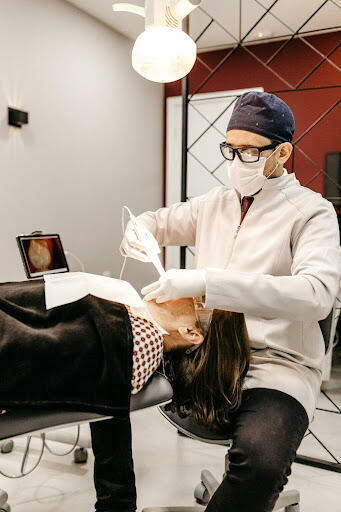
How to Take Better Care of Your Dental Health as You Age
Maintaining optimal dental health becomes increasingly crucial as we age. The wear and tear from years of use, combined with the natural process of aging, can lead to a host of dental issues, including gum disease, tooth loss, and sensitivity. However, with proper care and regular attention, it's entirely possible to keep your teeth healthy and strong well into your golden years. This guide aims to introduce you to effective strategies for taking better care of your dental health as you find yourself gracefully navigating through the later chapters of life.
Adopt a Rigorous Oral Hygiene Routine
Adopting a rigorous oral hygiene routine is fundamental in preventing dental problems as you age. Brushing twice a day with fluoride toothpaste and flossing at least once a day are indispensable habits that remove plaque, prevent tartar build-up, and fight against gum disease. It's also beneficial to incorporate the use of an antiseptic mouthwash to eliminate bacteria and freshen your breath.
However, as manual dexterity may diminish with age, exploring the use of electric toothbrushes can be a game-changer. These devices are not only effective in cleaning but also offer ease of use, especially for those with arthritis or other conditions that affect hand movements. Regularly changing your toothbrush or the head of your electric toothbrush every 3-4 months is also crucial to maintaining optimal oral health.
Schedule Regular Dental Check-ups
Scheduling regular dental check-ups is key to detecting and addressing dental issues early. These visits allow your dentist to perform a thorough cleaning, removing plaque and tartar that regular brushing can't, and to check for cavities, gum disease, or other oral health problems. They can also provide personalized advice on improving your oral care routine based on the specific needs of your teeth and gums.
In addition to routine check-ups, research cosmetic dentistry options for improving and maintaining your smile. As we age, our teeth can become discolored or chip, which can affect our self-confidence. The folks at https://www.savage-smile.io/ note that in the realm of cosmetic dentistry, patients are often presented with various options to enhance their smile. Two popular treatments are dental implants and veneers. Dental implants are a long-term solution for missing teeth, while veneers can correct numerous imperfections such as chipped or misaligned teeth.
Pay Attention to Diet and Nutrition
A balanced diet plays a significant role in maintaining strong teeth and healthy gums. Foods rich in calcium and vitamin D, such as dairy products, leafy greens, and fortified foods, help in maintaining bone density and supporting oral health. Additionally, consuming crunchy fruits and vegetables can stimulate saliva flow, which naturally cleanses the mouth and combats bacteria.
However, it's equally important to limit the intake of sugary and acidic foods and beverages that can erode tooth enamel and lead to decay. If you consume these items, do so in moderation, and try to brush your teeth or rinse your mouth with water shortly afterward to minimize their impact on your dental health.
Utilize Fluoride
The use of fluoride can significantly benefit dental health, especially in older adults. Fluoride strengthens tooth enamel and makes it more resistant to decay. Incorporating a fluoride mouthwash into your oral care routine can provide an additional layer of protection against tooth decay.
Don't hesitate to ask your dentist about professional fluoride treatments, which can offer a higher concentration of fluoride than over-the-counter products. These treatments can be especially beneficial for individuals at higher risk of dental decay or with existing dental work, such as crowns or bridges.
Be Aware of Dry Mouth
Dry mouth, or xerostomia, occurs when the salivary glands don't produce enough saliva to keep the mouth wet. It's a common issue among older adults, often as a side effect of certain medications or medical conditions. Saliva plays a critical role in neutralizing acids produced by bacteria, thus protecting the teeth from decay and gum disease.
To combat dry mouth, stay hydrated by drinking plenty of water throughout the day. Chewing sugar-free gum or sucking on sugar-free candies can also stimulate saliva production. If dry mouth persists, consult your dentist or doctor. There are saliva substitutes and medications that can help manage the condition, ensuring your mouth stays moisturized and healthy.
Aging gracefully includes taking meticulous care of your dental health to ensure a high quality of life and confidence in your smile. By adopting a comprehensive oral hygiene routine, scheduling regular dental check-ups, paying close attention to your diet and nutrition, utilizing fluoride, and managing dry mouth, you lay a strong foundation for maintaining your dental health into your later years. It's never too late to start prioritizing your oral health. Engage actively with your dental care providers, and don't be afraid to adopt new practices that can help preserve your teeth and gums.